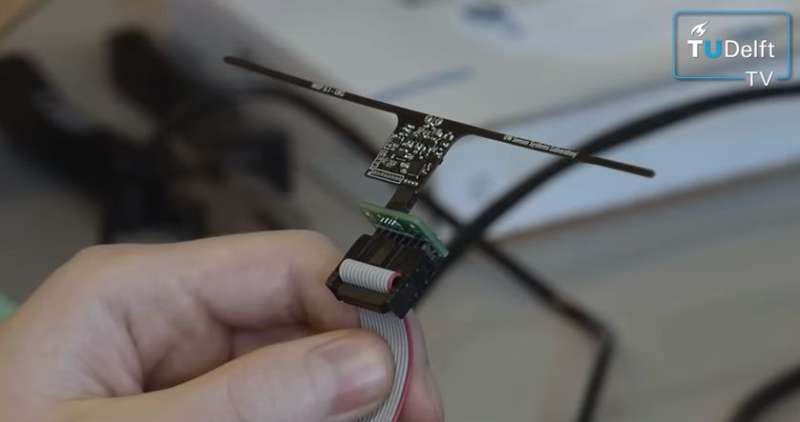April 30, 2016 weblog
Radio waves not battery fire up WISP, future seen in construction

What if computing could be lifted from the time and form constraints of batteries? What about a small battery free computer that works on radio waves?
The Wireless Identification and Sensing Platform (WISP) is a programmable wireless computer that draws power from radio waves and it is in the news. Joel Hruska in ExtremeTech said it's the result of a research effort between a University of Washington team and TU-Delft in the Netherlands.
The Delft/Seattle team of Jethro Tan, Przemysław Pawełczak, Aaron Parks and Joshua Smith have written a paper on WISP, posted on the arXiv earlier this year. The paper is titled "Wisent: Robust Downstream Communication and Storage for Computational RFIDs."
They present an implementation of something called Wisent for the WISP 5. They said that Wisent is a robust downstream communication protocol for CRFIDs that operates on top of the legacy UHF RFID communication protocol: EPC C1G2.
They said the protocol, Wisent, allows to transfer bulk data from host to CRFID in a "fast and robust" manner. Wisent, they said, allows to store and verify data despite power interruptions at the CRFID thanks to the use of non-volatile FRAM memory and simple error verification mechanism.
John Brownlee in Fast Company took a look at the research that went on at the University of Washington's Sensor Lab. Brownlee broke the effort down in its most basic terms: WISP is "a combination sensor and computing chip that doesn't need a battery or a wired power source to operate. Instead, it sucks in radio waves emitted from a standard, off-the-shelf RFID reader—the same technology that retail shops use to deter shoplifters—and converts them into electricity."
True, the CPU is weak by modern standards, said Hruska, but "it's an order of magnitude more powerful than any other device that's powered by ambient energy in the environment with no battery required."
Kelsey Atherton in Popular Science said the WISP by the team at the Delft University of Technology and the University of Washington was not a particularly powerful computer but fine for powering modest sensors and recording their results. "Think accelerometers, not cameras," he said.
Brownlee in Fast Company said "it has about the same clock speed as the processor in a Fitbit and similar functionality, including embedded accelerometers and temperature sensors."
("It's not going to run a video game," said paper co-author Aaron Parks in Fast Company.)
At the same time, Parks noted what it can do: track sensor data, do some minimal processing tasks, and communicate with the outside world.
So if we are not talking about especially powerful computing, what good is WISP other than as a research curiosity? Brownlee answered: "WISP could be used right now is architecture. By embedding these sensors in concrete structures, inspectors could detect whether or not a building's foundations had been damaged by an earthquake—without cracking anything open. Parks also says battery-free computers are perfect for implantable devices, to monitor patients' health. There's also interest in WISP-like computers from the agriculture industry, which sees value in it as a way of monitoring thousands of plants at a time."
Atherton similarly looked into the future: "WISPs with sensors could someday become a standard part of building construction, putting tiny little ambient monitors into structures so we can check on the state of building passively at any time."
© 2016 Tech Xplore















